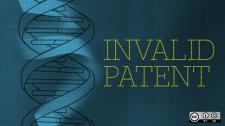Aggregated News

Stanford bioethicist Henry Greely predicts that a large proportion of human pregnancies — perhaps even 90% in the United States — will one day result from in vitro gametogenesis (IVG), the production of eggs and sperm from undifferentiated human cells1. Whether or not this prediction proves accurate, it is likely that IVG will fundamentally change how humans reproduce. IVG could offer the possibility of reproduction to those experiencing infertility, allow parents to choose from hundreds of genetically characterized embryos, enable relatively safe germline genetic modification, and open the door for same-sex parents to have genetically related offspring. Some assisted reproduction experts, like Jacques Cohen of the ART Institute of Washington, predict that IVG will replace virtually all conventional in vitro fertilization (IVF) procedures for those experiencing problems with fertility (J. Cohen, personal communication). Greely suspects that eventually most prospective parents — even those without fertility problems — will opt for IVG to reduce the risk of bearing offspring with genetic defects or to select for desirable traits.
It is not surprising, then, that researchers who are putting together...



